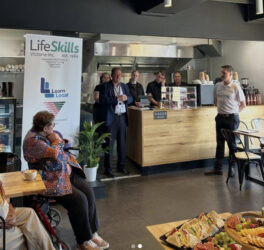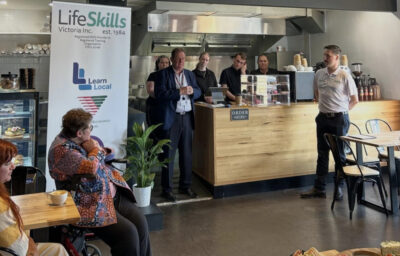
Some of the world’s biggest firms have begun a campaign which aims to tackle prejudice towards people with disabilities in the business world.
Companies with combined sales of more than $8 trillion and 20 million staff, including Apple, BP and Coca-Cola have joined the Valuable 500 initiative.
But founder Caroline Casey said the campaign was not just about employing more people with disabilities.
Firms are losing $13 trillion in sales by ignoring consumers with disabilities, she said.
Casey told the BBC, “As we move out of this pandemic and we need to recover, why would any business look at leaving $13 trillion on the table?”
She said in the UK, one third of FTSE companies did not have a website that was “acceptable to people with disabilities and their families. Why would you do that?”
Valuable 500 was launched at the 2019 World Economic Forum Meeting in Davos, with a goal of getting 500 international companies to commit to putting disability inclusion on their board agenda.
At the time, it published research which said 56% of global company boards had never had a conversation about disability and this was “leading to leaving disabilities on the sidelines of business.”
According to research figures, there are no executives or senior managers at FTSE 100 companies who have disclosed a disability, and only 12% of firms report the number of their employees who are disclosed as disabled.
The figures also show the average representation of people with disabilities among staff reported by FTSE 100 firms is just 3.2%.
All of them have have made a public commitment to advancing disability inclusion within their organisations, either among staff, customers or their supply chains.
“We have an inequality crisis facing the disability community which is just huge and it can’t be resolved without business meeting meaningfully at the table,” said Casey.
However, she stressed Valuable 500 was not just about recruiting. “We’re looking at driving systematic change in the business system [in terms of] customers and suppliers and talent.”
“If you want to be able to have access to that market you need to have that talent in your business and I think when we speak about disability business inclusions we always speak about employment and we forget the huge, huge value of this market globally.”
Over the last year or so, Casey said lockdown had helped show that the group’s objectives were achievable.
“It’s proved the business system can change, hasn’t it? Look how quickly our systems had to change because they wanted to and we can’t unknow what we now know.
“Our systems can flex and they can change and as we move out into recovery why would any business, an intelligent business leader, leave behind 15-20% of the global population. It would be madness absolute madness.”








